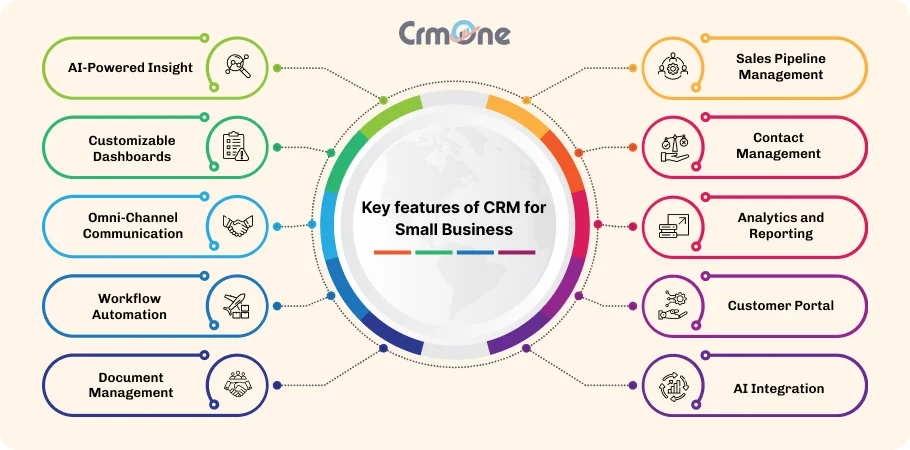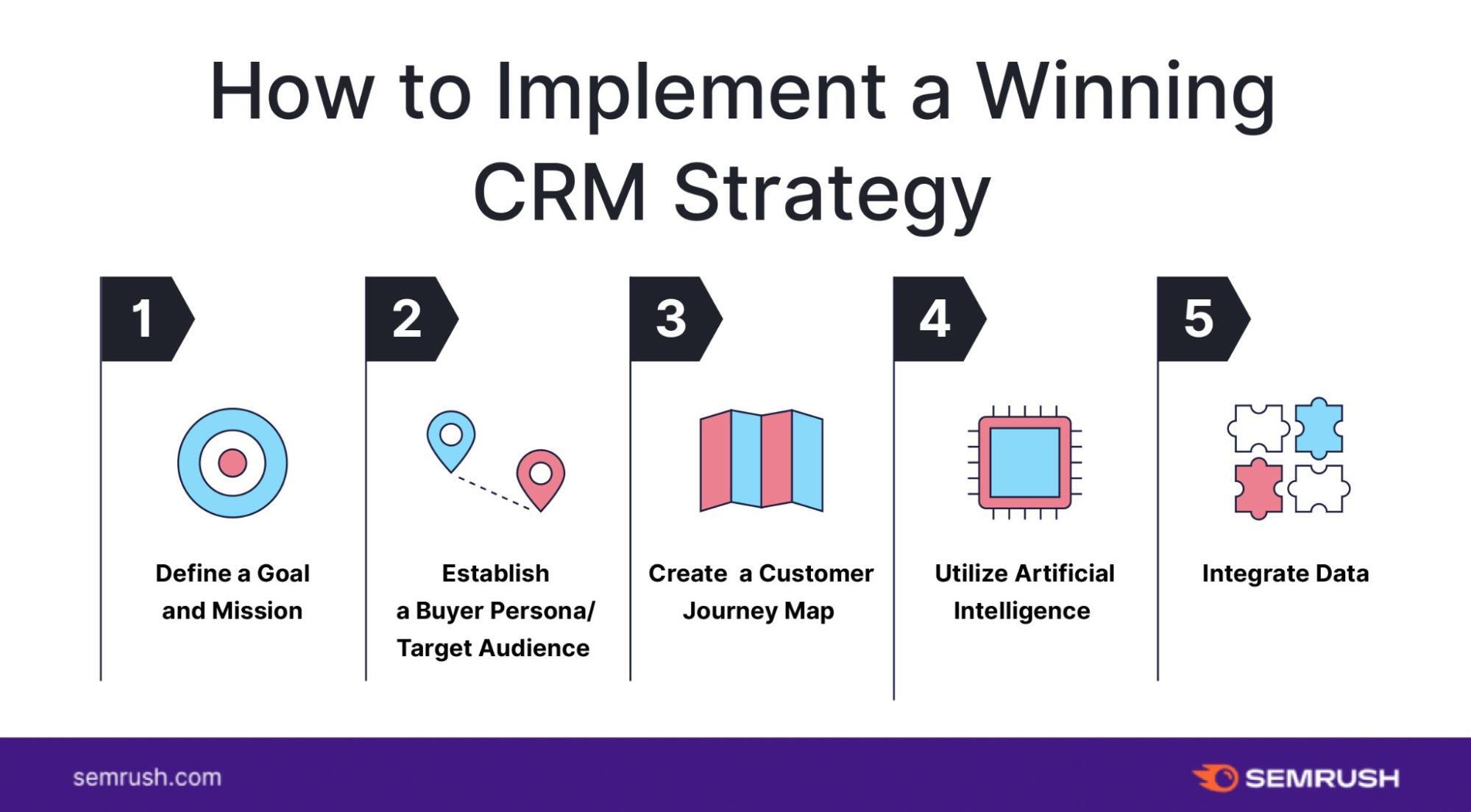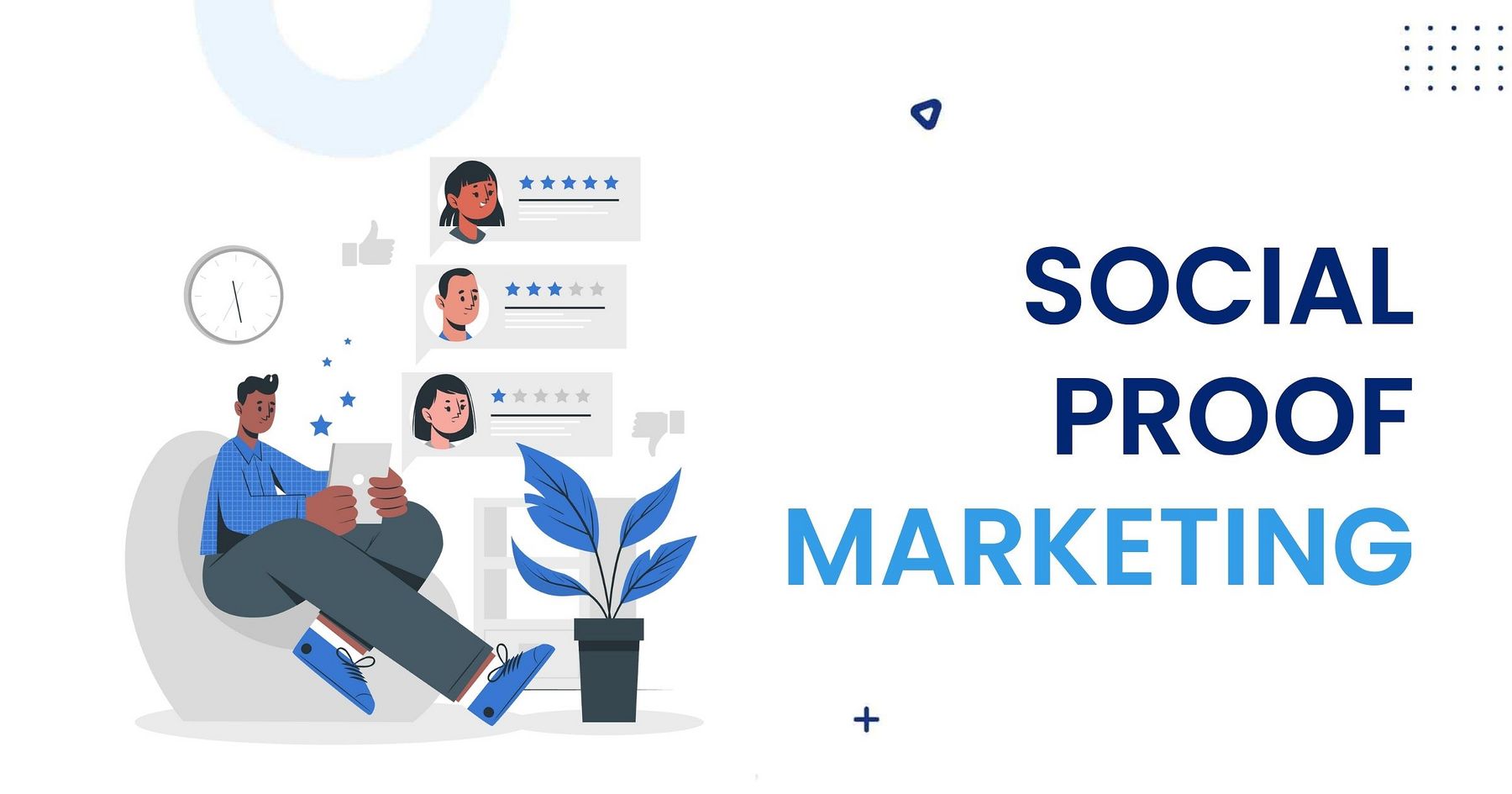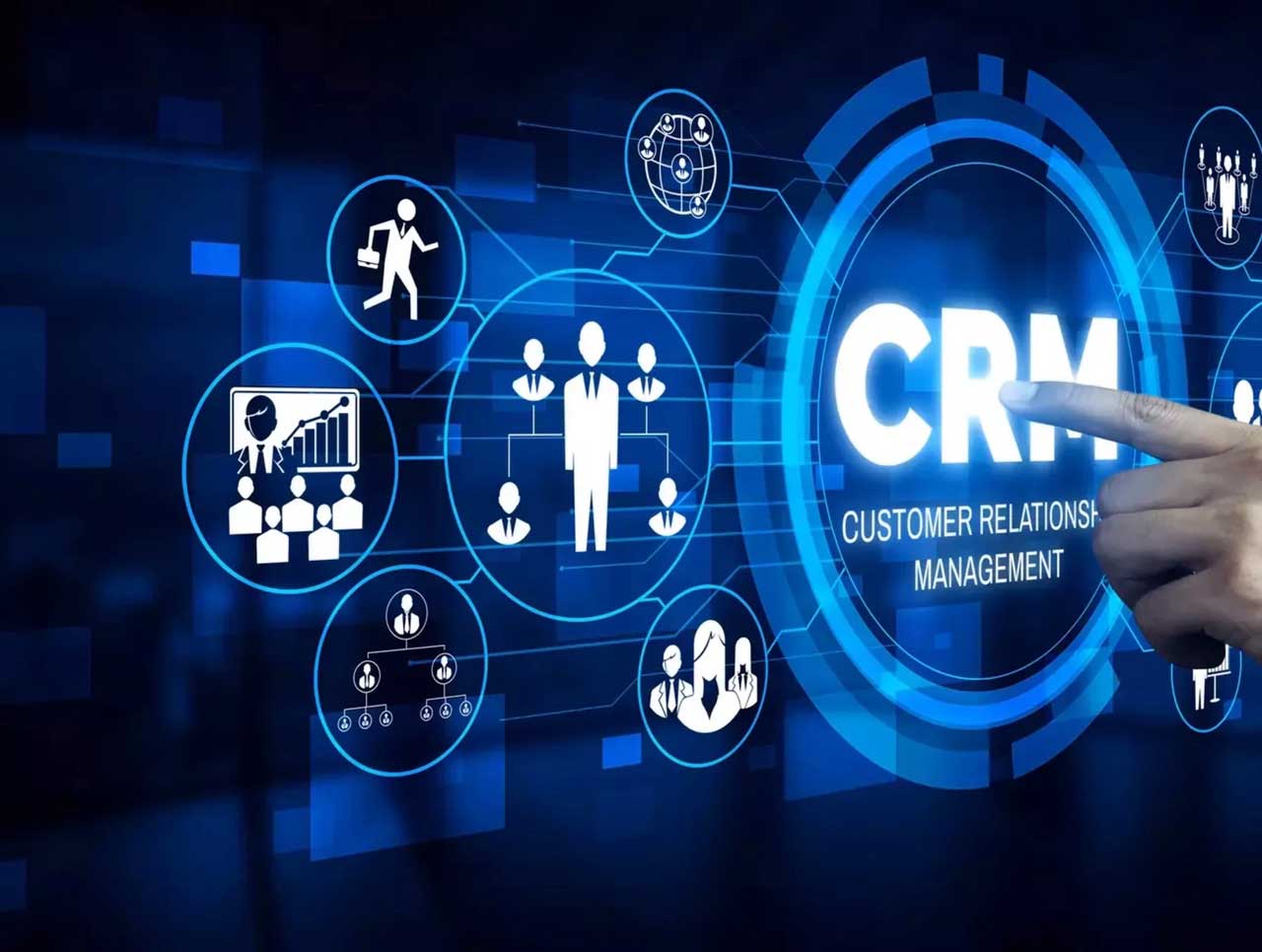Small Business CRM Security in 2025: Protecting Your Data in a Changing Landscape

Small Business CRM Security in 2025: A Comprehensive Guide
The digital world is constantly evolving, and with it, the threats to your business data. As a small business owner, you’re likely juggling multiple responsibilities, and security may sometimes feel like a secondary concern. However, in 2025, with cyber threats becoming increasingly sophisticated, robust CRM security isn’t just a good practice; it’s a necessity. This comprehensive guide will delve into the essential aspects of small business CRM security in 2025, offering actionable insights and practical advice to protect your valuable customer data.
The Growing Importance of CRM Security
Customer Relationship Management (CRM) systems have become indispensable for small businesses. They centralize customer data, streamline interactions, and improve overall efficiency. However, this centralization also makes CRM systems attractive targets for cyberattacks. A data breach can lead to significant financial losses, damage your reputation, and erode customer trust. In 2025, the stakes are higher than ever.
Why CRM Systems Are Targeted
- Valuable Data: CRM systems contain sensitive customer information, including personal details, financial records, and purchase history. This data is highly valuable to cybercriminals.
- Accessibility: Many CRM systems are accessible via the internet, making them vulnerable to remote attacks.
- Integration: CRM systems often integrate with other business applications, creating multiple entry points for attackers.
- Compliance: Increasingly stringent data privacy regulations, like GDPR and CCPA, mean that businesses face hefty penalties for data breaches.
Key Security Threats in 2025
Understanding the specific threats you face is the first step in securing your CRM. In 2025, several threats are particularly relevant for small businesses:
Ransomware Attacks
Ransomware remains a significant threat. Cybercriminals encrypt your data and demand a ransom for its release. This can cripple your business operations and result in significant downtime and financial loss. The sophistication of ransomware attacks continues to increase, with attackers often targeting specific industries and businesses.
Phishing and Social Engineering
Phishing attacks, where attackers use deceptive emails or messages to trick employees into revealing sensitive information, are a constant threat. Social engineering tactics, which manipulate employees into performing actions that compromise security, are also on the rise. In 2025, these attacks are becoming increasingly personalized and targeted.
Data Breaches and Insider Threats
Data breaches, whether caused by external attacks or internal negligence, can expose sensitive customer data. Insider threats, such as disgruntled employees or those who inadvertently make mistakes, can also pose a significant risk. Thorough employee training and access control measures are crucial in mitigating these threats.
Advanced Persistent Threats (APTs)
APTs are sophisticated, long-term attacks that are designed to infiltrate systems and remain undetected for extended periods. These attacks often involve a combination of techniques, such as malware, phishing, and social engineering. Small businesses may be targeted by APTs as a stepping stone to reach larger organizations or as a way to steal valuable intellectual property.
Supply Chain Attacks
Businesses are increasingly reliant on third-party vendors and suppliers. Cybercriminals may target these vendors to gain access to your CRM system or other critical data. This is a growing concern, as attackers look for ways to exploit vulnerabilities in the supply chain.
Essential Security Measures for Your CRM in 2025
Implementing a robust security strategy is crucial to protect your CRM. Here are some essential measures to consider:
Strong Authentication and Access Control
Implement strong authentication methods, such as multi-factor authentication (MFA), to verify user identities. MFA requires users to provide multiple forms of verification, making it significantly harder for attackers to gain unauthorized access. Regularly review and update access controls to ensure that only authorized personnel have access to sensitive data. Use the principle of least privilege, granting users only the minimum level of access necessary to perform their job functions.
Data Encryption
Encrypt your data both in transit and at rest. This means encrypting data as it is being transmitted between your CRM system and other systems, as well as encrypting data stored within your CRM system. Encryption makes your data unreadable to unauthorized individuals, even if they gain access to your systems.
Regular Backups
Implement a comprehensive backup and recovery plan. Regularly back up your CRM data to a secure, offsite location. Test your backups frequently to ensure that you can restore your data in the event of a data breach or system failure. Consider using automated backup solutions to simplify this process.
Vulnerability Scanning and Penetration Testing
Conduct regular vulnerability scans to identify and address security weaknesses in your CRM system. Perform penetration testing, which simulates a real-world cyberattack, to assess your system’s resilience. These tests can help you identify vulnerabilities that you may not be aware of and provide valuable insights into how attackers might exploit them.
Security Awareness Training
Educate your employees about cybersecurity best practices, including how to identify phishing emails, avoid social engineering tactics, and protect sensitive data. Provide regular training and updates to keep your employees informed about the latest threats and security protocols. Consider conducting simulated phishing exercises to test your employees’ awareness.
Firewalls and Intrusion Detection Systems
Implement firewalls to protect your CRM system from unauthorized access. Use intrusion detection systems (IDS) to monitor your network traffic for suspicious activity. These systems can alert you to potential threats and help you respond quickly to security incidents.
Regular Software Updates and Patch Management
Keep your CRM software and all related applications up to date with the latest security patches. Software updates often include critical security fixes that address known vulnerabilities. Establish a patch management process to ensure that updates are applied promptly and consistently.
Incident Response Plan
Develop a comprehensive incident response plan that outlines the steps you will take in the event of a data breach or other security incident. This plan should include procedures for identifying, containing, eradicating, and recovering from the incident. Regularly test your incident response plan to ensure that it is effective.
Compliance with Data Privacy Regulations
Ensure that your CRM security practices comply with relevant data privacy regulations, such as GDPR, CCPA, and others. This includes implementing appropriate security measures, obtaining consent for data collection and processing, and providing individuals with the right to access, rectify, and erase their data.
Choosing the Right CRM for Security in 2025
Selecting a CRM system with robust security features is critical. Here are some key factors to consider:
Security Features
Look for a CRM system that offers built-in security features, such as multi-factor authentication, data encryption, access controls, and audit trails. Choose a CRM provider that prioritizes security and regularly updates its software to address vulnerabilities.
Compliance
Ensure that the CRM system complies with relevant data privacy regulations. This can save you from potential fines and legal issues.
Vendor Reputation
Research the CRM vendor’s reputation for security. Read reviews, check their security certifications, and assess their track record of addressing security incidents. Choose a vendor that has a strong commitment to security and a proven ability to protect customer data.
Integration with Security Tools
Consider how well the CRM system integrates with your existing security tools, such as firewalls, intrusion detection systems, and security information and event management (SIEM) solutions. Seamless integration can help you monitor and respond to security threats more effectively.
Scalability and Flexibility
Choose a CRM system that can scale with your business and adapt to changing security needs. The system should be flexible enough to accommodate new security technologies and evolving threats.
The Role of Artificial Intelligence (AI) in CRM Security
Artificial intelligence (AI) is playing an increasingly important role in CRM security. AI-powered security solutions can automate threat detection, analyze data for anomalies, and respond to security incidents in real-time. Here’s how AI is being used:
Threat Detection
AI algorithms can analyze vast amounts of data to identify potential threats, such as phishing attacks, malware, and insider threats. AI can detect subtle patterns and anomalies that human analysts might miss.
Behavioral Analysis
AI can analyze user behavior to identify suspicious activities, such as unauthorized access attempts or unusual data access patterns. This can help prevent data breaches and other security incidents.
Automated Incident Response
AI can automate incident response tasks, such as isolating infected systems, blocking malicious traffic, and notifying security teams. This can reduce the time it takes to respond to security incidents and minimize the impact on your business.
Predictive Analytics
AI can predict potential security threats based on historical data and current trends. This can help you proactively protect your CRM system and prevent attacks.
Implementing a Multi-Layered Security Approach
The most effective CRM security strategy involves a multi-layered approach, which combines multiple security measures to create a robust defense. This approach includes:
Network Security
Protect your network with firewalls, intrusion detection systems, and other security tools. Segment your network to isolate your CRM system and other critical resources.
Endpoint Security
Secure the devices that access your CRM system, such as laptops, smartphones, and tablets. Implement endpoint detection and response (EDR) solutions to detect and respond to threats on these devices.
Application Security
Secure your CRM application with strong authentication, access controls, and regular security updates. Perform vulnerability scans and penetration testing to identify and address security weaknesses.
Data Security
Encrypt your data both in transit and at rest. Implement data loss prevention (DLP) measures to prevent sensitive data from leaving your organization.
People Security
Educate your employees about cybersecurity best practices. Provide regular training and updates to keep them informed about the latest threats and security protocols. Foster a culture of security awareness within your organization.
Future Trends in CRM Security
The landscape of CRM security is constantly evolving. Here are some future trends to watch for:
Zero Trust Security
Zero trust security is a security model that assumes no user or device can be trusted by default, regardless of whether they are inside or outside the network perimeter. This approach requires continuous verification and authorization of users and devices. This will become increasingly important as remote work becomes more prevalent.
Biometric Authentication
Biometric authentication, such as fingerprint scanning and facial recognition, is becoming more common. These methods provide a more secure and convenient way to authenticate users and protect access to sensitive data.
Blockchain Technology
Blockchain technology can be used to secure CRM data by creating an immutable ledger of customer information. This can help prevent data tampering and improve data integrity.
Quantum Computing
Quantum computing poses a potential threat to current encryption methods. As quantum computers become more powerful, they could potentially break existing encryption algorithms. Businesses will need to adopt quantum-resistant encryption methods to protect their data.
Conclusion: Securing Your Future with Proactive CRM Security
In 2025, small businesses must prioritize CRM security to protect their valuable customer data and maintain their reputations. By implementing the security measures outlined in this guide, you can significantly reduce your risk of data breaches and cyberattacks. Embrace a proactive approach to security, stay informed about the latest threats, and continuously adapt your security practices to stay ahead of the curve. Your business’s future depends on it. Investing in robust CRM security isn’t just about protecting your data; it’s about building customer trust, maintaining business continuity, and ensuring long-term success. Don’t wait for a data breach to happen. Start securing your CRM today.



